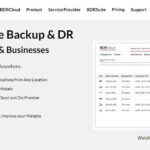Internet connectivity is essential for business growth in today’s world. The rise of cloud technology, smart AI algorithms, digital social profiles, and other advancements necessitate the presence of a good internet connection to power up any business organization from its base up. This has led to many business owners searching for “internet available in my area” to try and find the best service plan for them. However, with so many ISPs offering business internet deals in the market, finding that one perfect service can seem challenging. This is where our guide comes in. It will take you on a quick tour through the ins and outs of your business ISP search, and equip you with the knowledge that will help you make an informed decision at the end. Just hang tight, and read on.
Types of Business Internet Connections & Top Service Providers
At least four main types of internet connections may be available to you depending on your area of operation. Knowing how each of them works will enable you to recognize the type that fits your business’s needs the best. Here is a quick look at the internet connection types:
Digital Subscriber Line – This type of internet connection leverages the existing telephone lines in an area to transmit internet signals. It is a low speed, low cost, and low maintenance option, ideal for small businesses. AT&T is a well-known DSL business internet provider in this category with the most stable speed delivery.
Coaxial Cable – This type of internet connection takes advantage of the existing television copper lines in a community to carry internet signals back and forth between the ISP and the subscriber. It is a high speed, low cost, and low maintenance option, best for medium-sized businesses. Charter Spectrum™ is the largest cable internet provider with no contract commitments.
Fiber Optic – This type of internet connection uses extremely sophisticated fiber optic technology to beam internet signals in the form of light pulses through microscopic glass-based wires. It is a high speed (up to 1 Gig performance), high cost and high maintenance option, suitable for large-scale business organizations. Verizon Fios is the top contender in this category with excellent customer service.
Satellite – This type of internet connection does not rely on wires to send and receive internet signals. Instead, it maneuvers orbiting satellites to broadcast network data. For businesses operating on the outskirts of cities where cables cannot reach, a satellite is a go-to option. Viasat is one of the best satellite internet providers for rural businesses with no hard data caps.
Internet Speed Chart for Enterprises
The needs of a business can outsize its stature. For instance, a small business may have huge AI systems in place that require blazing fast internet speeds to bring results. Similarly, a large business organization may only need the internet for social media activities. It is relative, which is why you should determine your exact network requirements before setting out to find the best service provider for your business. Here is a speed comparison chart that might come handy:
| Speed Range | Activities Supported | Connected Devices/Users | Optimal Connection Type |
| 3 – 5 Mbps | Basic browsing, social media & email | 1+ | DSL |
| 15 – 25 Mbps | Business communication, video conferencing & large file downloading | 3+ | DSL |
| 50 – 75 Mbps | Multiple Point of Sale transactions, video streaming & file sharing | 5+ | DSL, Cable |
| 100 – 150 Mbps | Large data backups, crowded Wi-Fi usage & cloud computing | 10+ | DSL, Cable |
| 200 – 250 Mbps | Perfect video conferencing, heavy data usage & web server hosting | 15+ | Cable |
| 500 Mbps | Frequent server hosting, heavy backups & multiple cloud-based activities | 20+ | Cable, Fiber |
| 1000 Mbps or 1 Gbps | Everything online with no lags | 30+ | Fiber |
Factors to Look Out For in a Business ISP
Besides connection type and speed range, several other factors differentiate one business internet service provider from another and allow you to make a better comparison, during your search for a network. So, after you have pinned down the connection type and the speed required, consider the following things too:
Bundle Promotions – Discounts are always favorable. Many internet providers give you the option of combining your business internet with other services, such as a business phone, a streaming TV, or a Voice over Internet Protocol solution, at discounted rates. So, evaluate the promotions available in your area and go for the best business bundle.
Technical Support – An efficient technical support from a business ISP can give you peace of mind unlike any other. ISPs try to maintain a high standard of customer service when it comes to aiding business clients. See if the ISPs in your locality deliver 24/7 tech support, with live chat functionality and on-site assistance.
Service Level Agreement – SLA makes sure that a provider delivers on your network expectations. Choose a business ISP that has a solid Service Level Agreement, and compensates you well in case of a network miscarriage or unnecessary downtime. Read the contracts and terms of service carefully before signing.
Extra Cloud Space – Data storage is a vital part of any business. Long gone are the days of traditional hard copies and hard drives. The cloud technology rules over everything now and makes data storage and data access incredibly convenient. A few business ISPs offer extra cloud storage as an added incentive or for a small price. Keep an eye out for this feature.
Virtual Private Network – A VPN gives an extra layer of privacy and security. It shields your corporate network from outside influences and allows you to link to the same network even when you are working remotely. Some internet providers host VPN services for businesses. See if such a service is available to you.
Email Accounts – A professional set of email accounts can build a business’s prestige. A number of corporate internet providers deliver email services as a part of their plans. So, if you require individual email accounts, then single out a provider who offers them at a low to no price.
Internet Hardware – Terms of equipment usage matter. An ISP may allow you to purchase internet hardware from them outright to receive the best possible speeds, or rent the equipment on a monthly basis, or to use your own compatible routers. Keep the flexibility of choice in mind.
Antivirus Protection – Security is an important factor. Some internet providers offer antivirus, anti-spam, anti-malware, and anti-spyware protection in addition to a security suite for POS transactions. Check if the ISPs in your area provide this facility and if it is included for free or for an extra payment.
Wrapping Up
The process of finding and selecting an internet service provider for your business may seem challenging, but if you keep the aforementioned information in mind, concerning connection types, average speeds, and comparative factors, your search will go smoother than expected.






















0 Comments